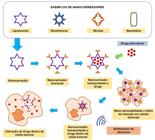Abstract
The action of the immune system against neoplastic diseases has become one of the main sources of research. The biological pathways of this system are known to contribute in limiting the progression and elimination of the tumor, and are delineated by concepts and mechanisms of immunosurveillance and immunoediting. Immunosurveillance is considered the process by which the immune system recognizes and inhibits the neoplastic process. The concept of immunoediting arises in the sense that immune system is able to shape the antigenic profile of the tumor due to selective pressure, based on the stages of tumor elimination, balance and evasion. The immune response occurs against tumor antigens and changes in the tumor microenvironment, involving different components of the innate immune system, such as T cells, natural Killer cells, B lymphocytes and macrophages. In this sense, knowing these concepts and understanding their respective mechanisms becomes essential in the investigation of new strategies for cancer prevention and cure. Thus, this review presents historical aspects and definitions of immunosurveillance and tumor immunoediting, with emphasis on its importance and applicability, such as on the different methods used in immunotherapy.
Keywords:
immunocompetence; tumor immunology; immunotherapy; tumor progression; immune system

 Thumbnail
Thumbnail
 Thumbnail
Thumbnail
 Thumbnail
Thumbnail


